Search Results for Tag: investigative journalism
Innovative journalism and advocacy projects
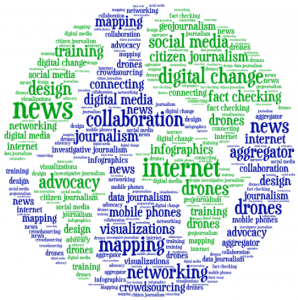 The rapid rise of mobile phones, the Internet and above all, social media is making it easy for even small media organizations and advocacy groups to create journalism networks or develop innovative digital projects that have an impact. From documenting the disappearance of trees in the Amazon rainforest to giving a voice to the illiterate in India or connecting journalists covering Colombia’s conflict, onMedia gives you a snapshot of interesting projects from around the world.
The rapid rise of mobile phones, the Internet and above all, social media is making it easy for even small media organizations and advocacy groups to create journalism networks or develop innovative digital projects that have an impact. From documenting the disappearance of trees in the Amazon rainforest to giving a voice to the illiterate in India or connecting journalists covering Colombia’s conflict, onMedia gives you a snapshot of interesting projects from around the world.
![]() read more
read more
John Goetz: “Secret services don’t work well”
 It was a few blurred spots on Google Maps that sparked the curiosity of investigative journalist John Goetz and his colleague Christian Fuchs. They wondered what was being hidden in Germany from the public eye. Several years of in-depth research later, they had their answer: they discovered US agencies were coordinating part of the war on terror from German soil, including the drone war against Africa.
It was a few blurred spots on Google Maps that sparked the curiosity of investigative journalist John Goetz and his colleague Christian Fuchs. They wondered what was being hidden in Germany from the public eye. Several years of in-depth research later, they had their answer: they discovered US agencies were coordinating part of the war on terror from German soil, including the drone war against Africa.
Goetz, who currently works for the German public broadcaster NDR and the Süddeutsche Zeitung newspaper, has continually come up against secret services in his investigations. He helped expose the locations of CIA secret prisons in Europe as well as the secret service bumbling that led to the US using false intelligence from the Iraqi defector known as “Curveball” (who still lives in Germany) to justify the Iraqi war. “The essence of journalism is to show if a country is living a national lie” is one of Goetz’s mottos.
In his most recent coup, Goetz met with one of the world’s most wanted men, NSA whistleblower Edward Snowden. And despite, or perhaps because of his investigations into the activities of the US secret services, Goetz has a relaxed attitude to potentially being under surveillance.
“Secret services don’t work well,” he says in an interview with onMedia.
![]() read more
read more
Giannina Segnini: “Journalism needs to go global”
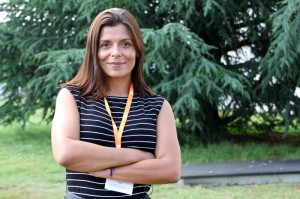 Stories based on the offshore leaks investigations into tax havens have shaken political and financial institutions around the world since they first started appearing in April. Now the leaked data has been released as an online database available to everyone.
Stories based on the offshore leaks investigations into tax havens have shaken political and financial institutions around the world since they first started appearing in April. Now the leaked data has been released as an online database available to everyone.
Thanks to an interactive web app developed by the investigative unit at the Costa Rican newspaper, La Nacion, users can search and visualize information on more than 100,000 secretive companies, trusts and funds in offshore financial centers.
The database, launched in June 2013 by the International Consortium of Investigative Journalists (ICIJ) is part of a cache of 2.5 million leaked files. The data has already been analyzed by around 100 journalists working at 58 media organizations in what has been called the largest journalism collaboration in history.
DW Akademie caught up with Giannina Segnini, who heads La Nacion’s investigative unit, on the sidelines of the Global Media Forum where Segnini was taking part in a panel discussion about data-driven journalism.
In her interview with Steffen Leidel, Segnini talks about the Offshore Leaks Database and the increasing need for reporters to collaborate, not just with each other, but also with computer programming experts. (You can read her article about building the database here.)
![]() read more
read more
Checking the facts in Africa
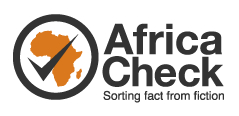 The idea of Africa Check is straightforward. Investigate claims made in public; check the facts; and, publish the findings.
The idea of Africa Check is straightforward. Investigate claims made in public; check the facts; and, publish the findings.
Africa Check was launched in 2012, and is a non-profit organisation led by the media development agency AFP Foundation and the Journalism Department of the University of the Witwatersrand in Johannesburg.
The organisation not only examines the public claims of politicians, leaders in civil society, government agencies and NGOs, but also checks the facts journalists use in their stories.
Peter Cunliffe-Jones of the AFP Foundation is the Director of Africa Check and says getting the facts right is the “essence” of journalism. But under the pressure to feed 24 hour news, and working across more topics, journalist may feel they “don’t have the time and the expertise, or even know where to look” to verify information.
Reading an Africa Check report is a little bit like a mini-lesson in the basics of journalism. You also see that this project has the potential to have a high impact on African media and perhaps serve as a model in other countries or regions.
![]() read more
read more
Data experts help expose offshore leaks
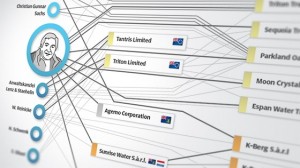 Last year, the International Consortium of Investigative Journalists (ICIJ) in Washington received a huge data set consisting of 2.5 million documents on tax havens from unknown sources. The documents contain 130,000 names of people from 170 countries suspected of fraud, among them oligarchs, arms dealers and criminal financial investors. Apart from that, there were more than two million emails and lists of 122,000 covert companies and trusts from respective tax havens. The unprecedented research that followed brought together media outlets from 46 countries which set themselves to check the data. Here in Germany, the Süddeutsche Zeitung, a leading newspaper, was involved in the process of analyzing the data. In this post editor Bastian Brinkmann writes how data experts helped to analyze the enormous volumes of data.
Last year, the International Consortium of Investigative Journalists (ICIJ) in Washington received a huge data set consisting of 2.5 million documents on tax havens from unknown sources. The documents contain 130,000 names of people from 170 countries suspected of fraud, among them oligarchs, arms dealers and criminal financial investors. Apart from that, there were more than two million emails and lists of 122,000 covert companies and trusts from respective tax havens. The unprecedented research that followed brought together media outlets from 46 countries which set themselves to check the data. Here in Germany, the Süddeutsche Zeitung, a leading newspaper, was involved in the process of analyzing the data. In this post editor Bastian Brinkmann writes how data experts helped to analyze the enormous volumes of data.
![]() read more
read more
Social science discovers data-driven journalism
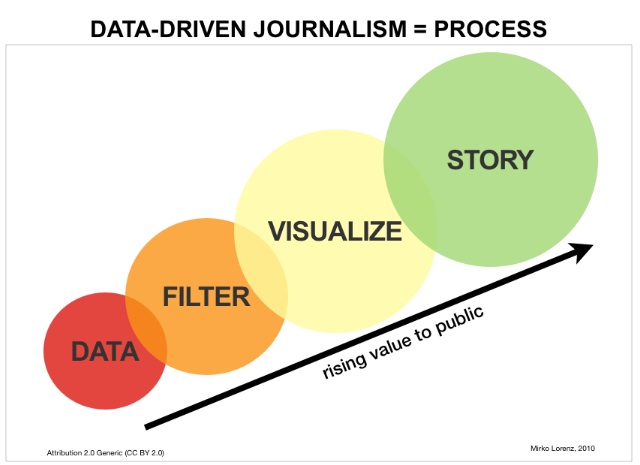 The social sciences can profit from data-driven journalism and vice-versa. Staff at the University of Zurich’s Institute of Political Science are so convinced of this that they’ll begin offering a major in data-driven journalism as part of their Master’s program starting in September 2013. The Institute’s head, Professor Fabrizio Gilardi, believes that the data-driven journalism course won’t just better qualify students for a career in the media. He also hopes that social scientists will start to utilize the techniques of data-driven journalism to present their research in more appealing ways. DW Akademie spoke to Gilardi about the new course.
The social sciences can profit from data-driven journalism and vice-versa. Staff at the University of Zurich’s Institute of Political Science are so convinced of this that they’ll begin offering a major in data-driven journalism as part of their Master’s program starting in September 2013. The Institute’s head, Professor Fabrizio Gilardi, believes that the data-driven journalism course won’t just better qualify students for a career in the media. He also hopes that social scientists will start to utilize the techniques of data-driven journalism to present their research in more appealing ways. DW Akademie spoke to Gilardi about the new course.
![]() read more
read more
Datawrapper: Making data-driven journalism fast and easy
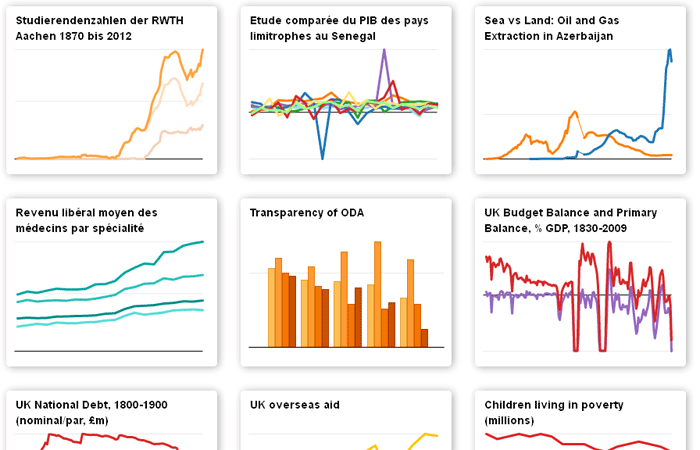 Journalists use statistics on a nearly daily basis, but visualizing data is a different story. With a boom in tools and apps to generate infographics and more, this could be changing. One such tool is Datawrapper, developed by Deutsche Welle New Media staffer Mirko Lorenz. “It’s a tool for getting started with data-driven journalism,” Lorenz said. He came up with the idea, and developed it with two programmers. “We didn’t just want to make showy charts, it’s really about the right diagram for the data at hand,” Lorenz said.
Journalists use statistics on a nearly daily basis, but visualizing data is a different story. With a boom in tools and apps to generate infographics and more, this could be changing. One such tool is Datawrapper, developed by Deutsche Welle New Media staffer Mirko Lorenz. “It’s a tool for getting started with data-driven journalism,” Lorenz said. He came up with the idea, and developed it with two programmers. “We didn’t just want to make showy charts, it’s really about the right diagram for the data at hand,” Lorenz said.
Editing desks around the world have been experimenting with the tool, including the Guardian data blog, Le Monde, a Dortmund regional newspaper – and of course, the Deutsche Welle. Datawrapper is open-source, and can be freely downloaded – it’s available in English, German and French.
In an interview with DW Akademie, Lorenz clarified what he thinks the “right” portrayal of data is all about, and explained the advantages of Datawrapper for journalists.
![]() read more
read more
Training to investigate West Africa’s mining sector
Three DW-AKADEMIE trainers recently travelled to the Liberian capital, Monrovia, to conduct an investigative reporting workshop on extractive industries. Funded by the German development agency, GIZ, the two-week workshop was attended by 12 print, radio and TV journalists from Sierra Leone and Liberia.
Africa’s vast mineral wealth has often been a curse, feeding graft, ethnic tensions and civil unrest.
In Sierra Leone and Liberia diamonds and gold fuelled brutal civil wars that killed tens of thousands of people and completely destroyed the economies of both countries.
Nearly a decade after the end of these wars, international mining companies are showing huge interest in Liberia and Sierra Leone. Managed wisely, mineral development could offer the two nations a chance to rebuild.
Both countries desperately need the revenue. With average incomes less than US$1 a day, Sierra Leone and Liberia are among the poorest nations in the world, ranking respectively 180 and 182 out of 187 countries in the United Nations Human Development Index.
For mining to be of benefit though, transparency is essential – starting from the bidding process to the awarding of concessions, the signing of contracts and the payment of royalties and taxes. In addition, the social and environmental impacts of exploration and mining activities need to be closely monitored – a vital role for journalists in both countries.
![]() read more
read more




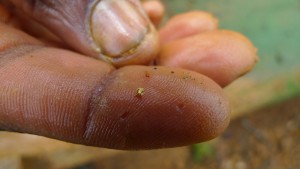
Feedback